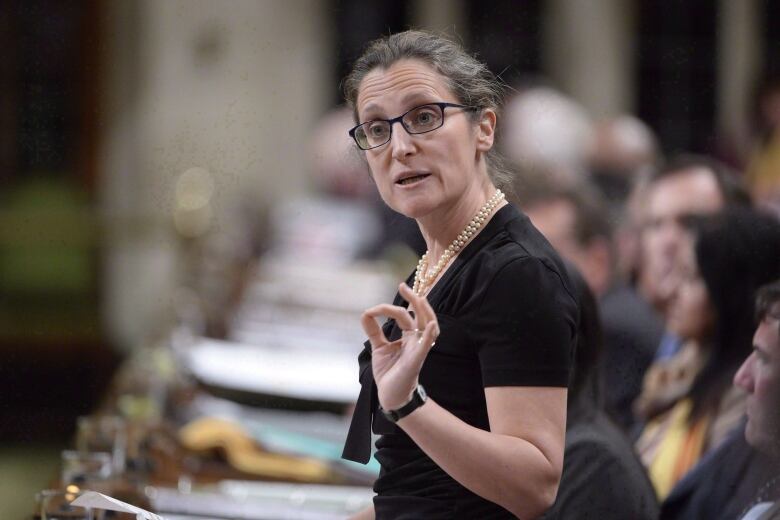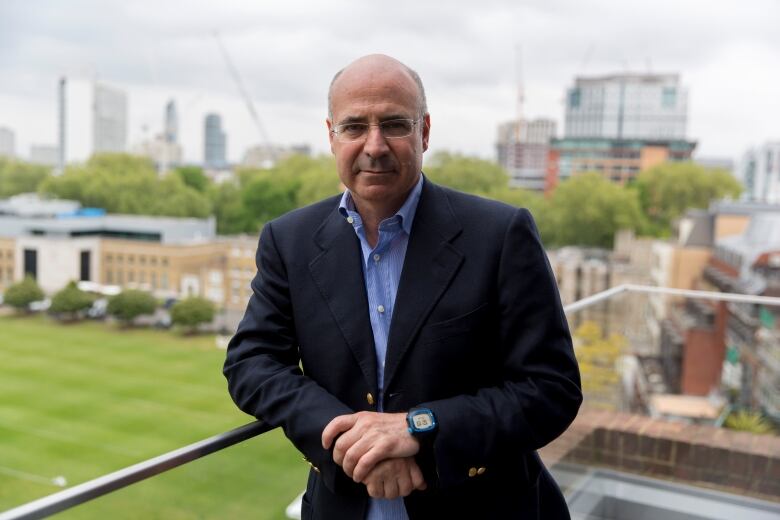Canada is getting its own Magnitsky Act and Vladimir Putin is not impressed

Members of the House of Commons voted on a bill this week called Justice for Victims of Corrupt Foreign Officials Act and it is guaranteed to make Vladimir Putin livid.
The bill is Canada's version of the Magnitsky Act, a series of laws named for a lawyer who died in Russian custody as he was investigating corruption. These laws target the property — the assets, the holdings, the wealth — of corrupt officials "who have committed gross violations of internationally recognized human rights."

When MPs in Ottawa voted on Wednesday night, all parties stood in agreement. The bill passed unanimously.
"It was very dramatic watching it," Bill Browder told me on Day 6. "They said: 'OK anybody against this?' and not a single person stood."
Sergei Magnitsky was Bill Browder's lawyer. Browder is a financier, the founder and CEO of Hermitage Capital Management, and was, at one time, the largest foreign investor in Russia. Now, as the Head of the Global Magnitsky Justice campaign and the author of Red Notice, he's bringing accountability to some of the most powerful players in Russia's kleptocracy.

Browder is someone they would like to hurt.
"There's probably 250 people in Moscow who are working in one way or another trying to destroy me," he says, "because Vladimir Putin is so angry with me."
"They made a number of threats against me: death threats, kidnapping threats, extradition requests, Interpol Red Notice arrest warrants, lawsuits."
"And it's a full time job fending off this stuff. But it is part of my life."
Death of a lawyer
Bill Browder hired Sergei Magnitsky in 2007 to investigate who'd stolen $230 million US in taxes he'd paid to the Russian government.
Magnitsky uncovered high level fraud by Russian officials. But instead of arresting the criminals he'd exposed, police instead detained Magnitsky and began an 11-month assault that would end in his death.

"They put him in cells with 14 inmates in eight beds, left lights on 24 hours a day to impose sleep deprivation. They put him in cells with no toilet, just a hole in the floor where the sewage would bubble up. They put him in cells with no heat and no windowpanes, in December in Moscow," says Browder.
"And the purpose of all this was to get him to withdraw his testimony and sign a false confession to say that he stole the $230 million and did so on my instruction."
They killed him for $230 million.- Bill Browder
"On the night on November 16, 2009, Sergei Magnitsky's body could no longer handle it."
Along with the abuse, Magnitsky was suffering from gall stones and pancreatitis. He needed surgery. That night, he was transferred to another facility.
"When he arrived there, instead of putting him in the emergency room, they put him in an isolation cell. They chained him to a bed, and eight guards with rubber batons beat him to death."
Sergei Magnitsky left two children and was 37 years old.

Stop the money, hit the oligarchs
Within days, Russian President Dmitri A. Medvedev ordered an inquiry into Magnitsky's death. But Bill Browder suspected the authorities responsible for his killing would have a hand in the investigation. He wanted another solution.
"At first we tried to get justice inside of Russia," says Browder.
"We discovered that Putin personally got involved in covering up the crime. He exonerated the officials involved. He gave special promotions and state honours to some of the people [who were] most complicit. And so we said to ourselves, 'Well, how do we get justice outside of Russia?'"
The answer turned out to be money.
"They killed him for $230 million. And they keep that money in the West. They keep that money in the United States, they keep it in Canada they keep it in France, they keep it in England. And so I went on this campaign to freeze the assets and ban the visas of the people who killed Magnitsky and the people who do similar types of things in Russia."
Putin personally got involved in covering up the crime.- Bill Browder
Browder campaigned members of the U.S. Congress to adopt a bill, and in 2012, in a bipartisan landslide, they passed the Sergei Magnitsky Rule of Law Accountability Act. Russian reaction was swift. Browder says the sanctions on Russian money are a particular aggravation to Vladimir Putin and his allies.
"The reason he's so upset by this is that he personally was a beneficiary of the $230 million tax rebate fraud that Sergei Magnitsky uncovered and exposed. We've been able to trace some of that money going back to a person who is known to be a Putin nominee, a guy named Sergei Roldugin who is exposed through the Panama Papers as basically getting $2 billion of largesse from Russian state banks and Russian oligarchs."

"He's Putin's best friend, godfather to Putin's children and a nominee for Vladimir Putin. He's gotten some of the money from the crime that Sergei Magnitsky exposed, which makes him, potentially, subject to the Magnitsky list," says Browder.
"And so, for Putin, this is personal. This is not just a thing that upsets him. As a matter of pride, this upsets him because he thinks that his wealth — and I should point out that he's got a lot of wealth, I estimated him to be worth $200 billion. He's the richest man in the world, in my opinion, and he thinks that his wealth is all at risk."
"And so for him, this is the single largest foreign policy priority for him to stop these Magnitsky acts and to get them repealed."
Reprisals from Moscow
This week, as MPs prepared to vote on Canada's Magnitsky legislation, a Russian foreign ministry spokesperson vowed that "any anti-Russian actions by the Canadian authorities will not be left without an adequate response."
Bill Browder says some Canadian law makers may find themselves banned from getting a Russian visa.
"And from what I know, most Canadian politicians that I know view that as a badge of honor. When I was going around Ottawa, the ones who weren't previously on the Russian sanctions list felt like they maybe hadn't been effective enough."

Bill Browder is pleased Canada's Parliament is committed to this bill. He says Canada's Magnitsky law carries a moral weight globally that makes it unique.
"There's a lot of anti-American sentiment around the world," he says. "There's no such thing as anti-Canadian sentiment. Everybody loves the Canadians and everybody views Canada as being a sort of, sort of honest broker in morality and international diplomacy. And so the fact that Canada has done this creates huge momentum for the rest of the world to follow."
"It means a lot to me and it means a lot to the whole cause of human rights in Russia."
To hear the full interview with Bill Browder, download our podcast or click the 'Listen' button at the top of this page.